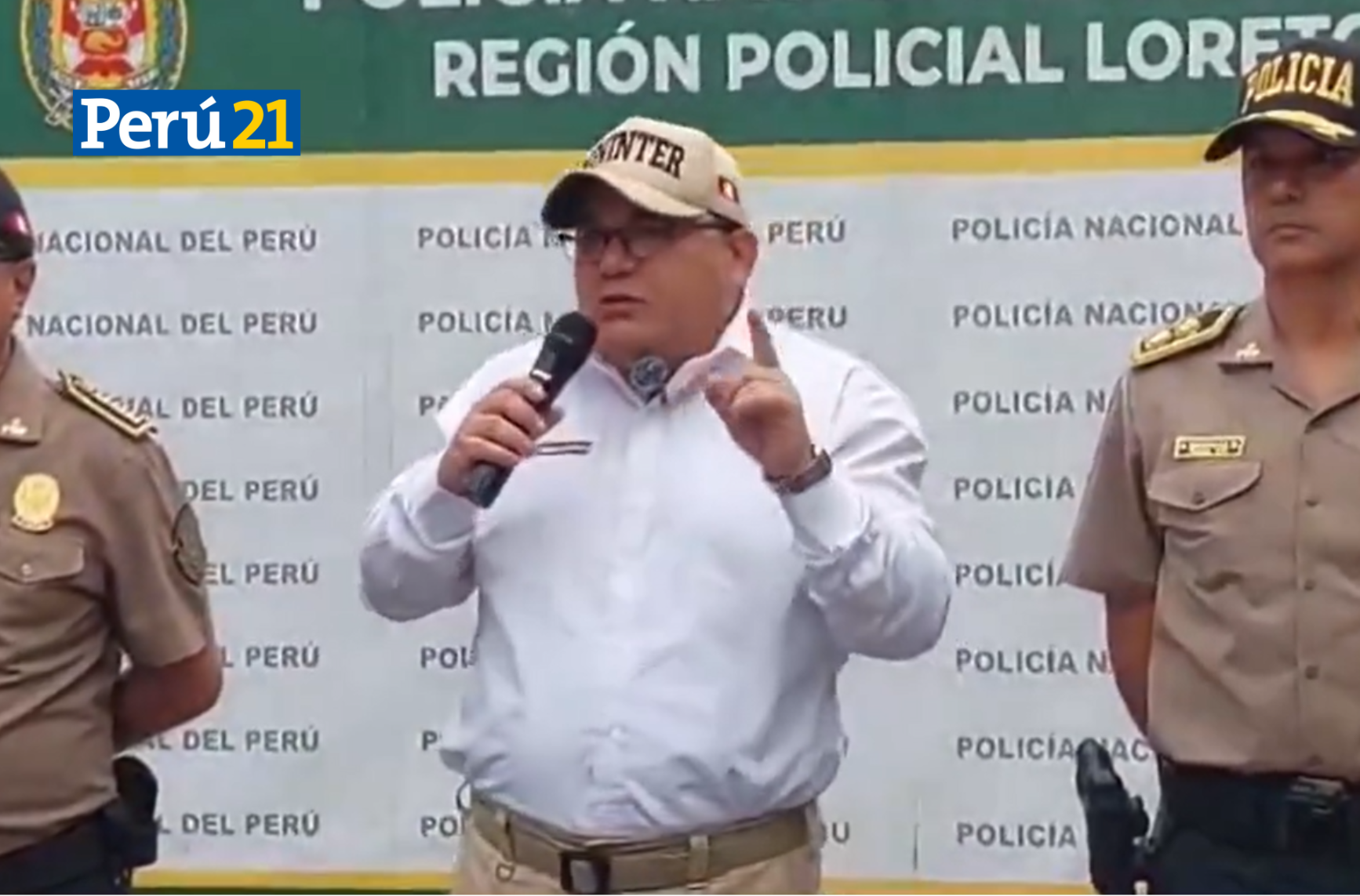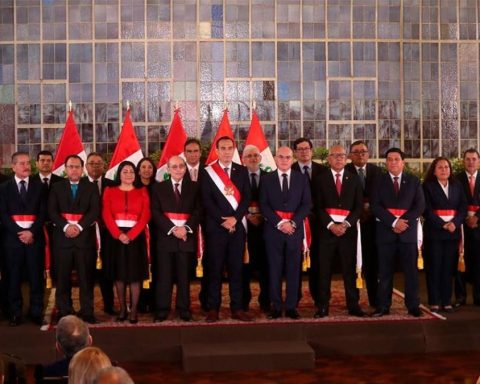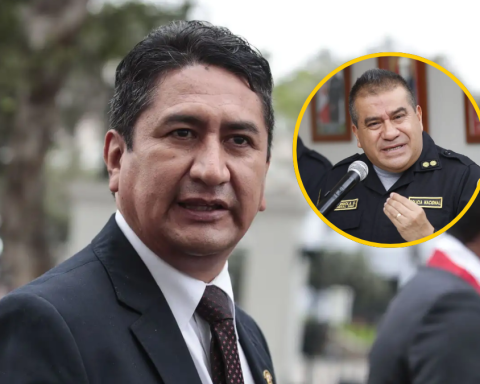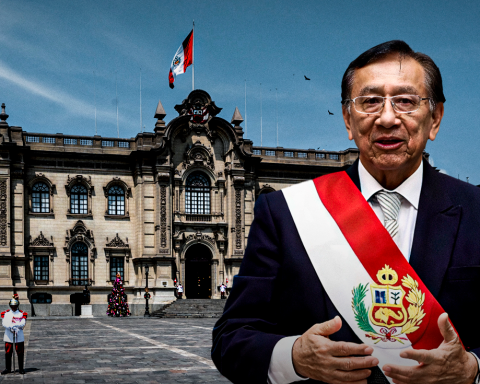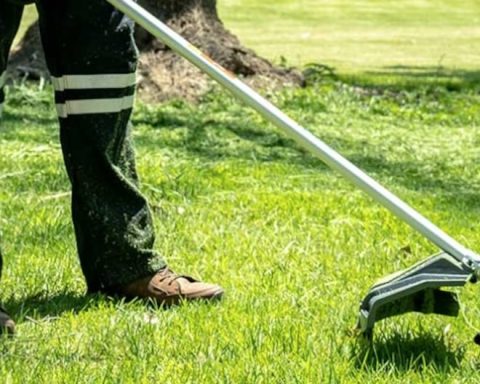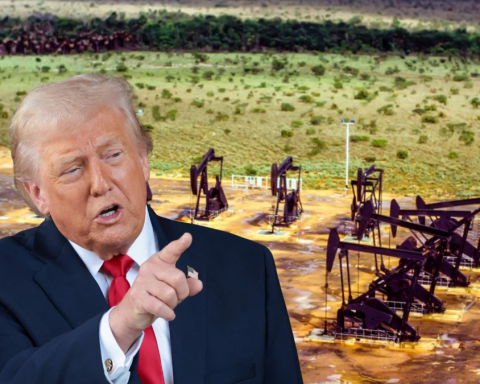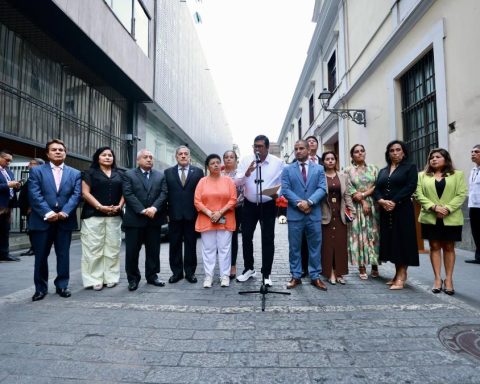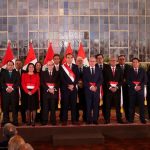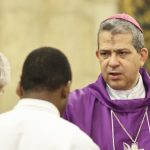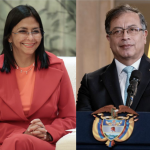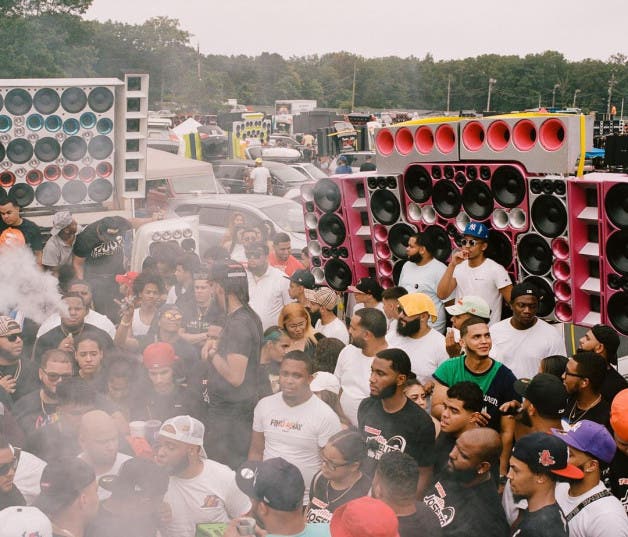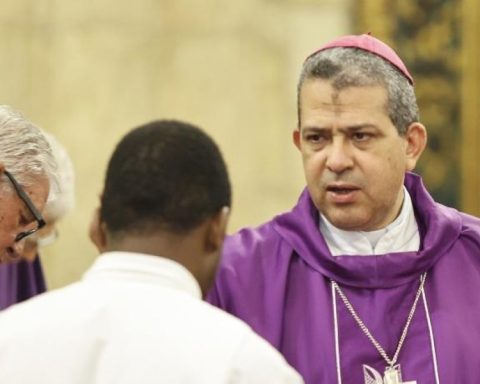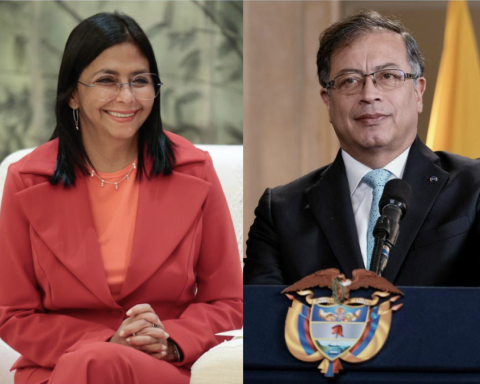The congresswoman Susel Paredes announced that the signatures for the interpellation of the Minister of the Interior had been obtained, Juan Jose Santivañezfollowing the increase in cases of extortion and contract killing at various levels in several regions of the country.
The document states that the head of the Mininter will be summoned so that he can “respond to the questions raised about his performance in that position and his lack of leadership in the fight against public insecurity.”
WATCH: Congress denies Dina Boluarte permission to travel to the United States
“This phenomenon not only violates several fundamental rights, but also has a negative impact on investments at all levels,” they added, recalling that the Ministry of the Interior is the institution responsible.
On her X account, legislator Ruth Luque stated that the recordings that were allegedly captured of the head of the Mininter by PNP captain Junior Izquierdo, alias ‘Culebra’ “compromise, in addition to his ethics, the actions of the government.”
“I have heard congressmen from various political positions question the minister’s actions. This is an opportunity to monitor, because the life, security and integrity of Peruvians are at stake,” he said.
These are the questions that Santiváñez will have to answer
- What specific measures have you implemented since the beginning of your administration to reduce crime rates, especially extortion, contract killings and aggravated homicides?
- What evaluation and control mechanisms are being applied to measure the effectiveness of the implemented strategies?
- How are you coordinating with other State institutions to ensure a comprehensive and effective response to insecurity?
- How much of the budget allocated to the Ministry of the Interior this year has been specifically allocated to citizen security programs and actions?
- How is the participation of neighborhood councils and other community actors being promoted in crime prevention?
- What awareness and education campaigns are being carried out to inform and protect the population against crime? What work plan and actions have you implemented in the Safe Neighborhood Program?
- What internal measures is the PNP taking within the framework of the Intersectoral Human Rights Mechanism to strengthen prevention and protection efforts for human rights defenders, given the number of victims of indigenous leaders and union leaders murdered by illegal mafias?
- Please explain what use does the name change that has been requested to be approved by the Congress of the Republic through PL 8510/2024-PE have for the function and fulfillment of goals of the portfolio that directs it?
- What international agreements or conventions are in force to combat transnational organized crime?
- What have been the tangible results to date in terms of reducing crime and improving public safety, especially in extortion, homicide and organized crime?
- How many patrol cars and vehicles does the Peruvian National Police have for patrol purposes? How many of these vehicles are inoperative? And what plan does it have to decommission inoperative vehicles?
- Have you considered any effective measures to deregister 100% inoperative vehicles older than 15 years, which are in police stations and special units?
- During your administration, what are the results of police investigations into cases of kidnappings and disappearances? And what percentage of cases of kidnappings and disappearances are solved?
- Do you acknowledge being the interlocutor in the recording broadcast by the media?
- What is the nature of your relationship with PNP Captain Junior Izquierdo Yarlequé, alias ‘Culebra’?
- Have you had other meetings or communications with Captain Izquierdo regarding ministerial decisions or actions? How many? Where? Do you have a record of these conversations?
Have you received any direct or indirect request from President Dina Boluarte to close the Division for the Investigation of Highly Complex Crimes (Diviac)? - Have you taken any action regarding the operation or continuity of Diviac since your appointment as Minister? If so, what have these actions been and what are the grounds that justify them?
- How do you, as Minister of the Interior, guarantee the independence and autonomy of the Peruvian National Police in carrying out complex investigations, especially those involving political figures or people close to the government?
- How do you ensure that ongoing investigations, especially those of high complexity, are not interrupted or manipulated by political influences?
- What is your position regarding the preservation and strengthening of Diviac as a key unit in the fight against organized crime and corruption in the country?
- Which people linked to highly complex crimes, organized crime, police corruption, drug trafficking or other highly complex crimes have been or are clients of you or your law firm? Name each one, the charges for which they are or were prosecuted and, if applicable, the sentences they have received.
- Have you implemented any internal audit or review to ensure that decisions taken in relation to Diviac and other specialized units have been made under strictly technical and operational criteria?
- How do you define your position regarding the autonomy of the Public Prosecutor’s Office? And do you consider the modification of the criminal procedure code that grants the National Police of Peru the power to carry out preliminary investigations of crimes to be constitutional?
- Given the number of murders and injuries resulting from extortion and contract killings, which are now also gaining relevance in the areas of construction and transportation, endangering all citizens, do you think that you are playing a significant role in the fight against crime and organized crime or do you simply have a political function for the purposes pursued by the government in relation to questioning the role of areas of the PNP such as the DIVIAC for being inconvenient to the power in power?
Since the beginning of your administration you have been questioned for exercising the legal defense of officials accused of causing harm to the State and that you have been involved in audio recordings that would seek to influence the work of officials and journalists. What do you think of authorities who think that “anything goes to get ahead”? Do you believe in meritocracy? - Given that in a democratic state of law the independence of powers and non-interference in other people’s competences prevail, do you think that it is in your role as Minister and a representative of the government to be permanently confronting the Public Prosecutor’s Office, which is a constitutionally autonomous body? Is there any animosity towards the Attorney General or is it related to the preliminary investigation that was opened against him for abuse of authority for allegedly trying to “control” a journalist?
- Do you consider yourself respectful of freedom of expression and opinion? Do you think it is right that some authorities try to use influence to silence or moderate the positions of journalists?
- It has been learned that the Peruvian State will pay the fees of his legal defense for the investigation carried out against him by the Public Prosecutor’s Office and that this amounts to approximately 120 thousand Peruvian soles.
- Do you think it is ethical that in a country where there are alarming figures of poverty and unemployment, such a large sum is paid for the defense of an official? Furthermore,
- Do you consider that your management at the head of the Sector is worth the significant expense that it will cause for all Peruvians?
RECOMMENDED VIDEO:
